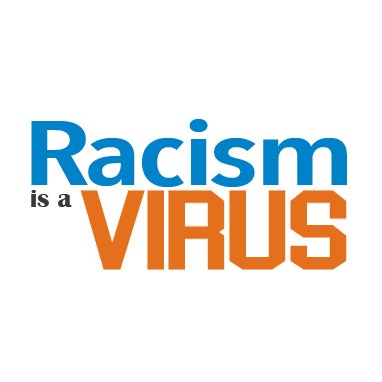| Before we share our statement below about the recent tragedy of George Floyd, we want you to know that Kidsbridge’s mission has been to reduce bias, discrimination and hate since 1996. Since then, we have been educating youth, parents and educators. Our quest continues. This is what we do every day: 1. Continue to educate ourselves on being anti-racist 2. Teach preschoolers, elementary and middle school youth a) Strategies and skills to reduce stereotypes and bias b) Respect for all people, civility, and diversity appreciation c) Bullying and cyberbullying prevention skills 3. Incorporate cultural competency into our programs and training 4. Provide educators, parents, and the community with activities for building social-emotional skills at home during Coronavirus, promoting empathy, kindness and empowerment (i.e., creating UPstanders) 5. Partner with schools that serve disadvantaged students in New Jersey Kidsbridge believes that a huge part of the solution to reduce bias, discrimination and hate is to invest in consistently teaching ALL youth starting from an early age. HELPFUL LINKS to ARTICLES ABOUT RACE How White Parents Can Talk About Race TALKING ABOUT RACE — Being Antiracist EMBRACERACE Action Guides 31 Children’s Books to Support Conversations on Race, Racism & Resistance “They’re Not Too Young to Talk about Race” What it Means to be Anti-Racist BEYOND: ‘I AM NOT A RACIST’ The deaths of George Floyd, Ahmaud Arbery, Breonna Taylor and far too many others can be our impetus as parents, caregivers and educators to work toward a future of racial and diversity acceptance and equal protection under the law. Eliminating bias, discrimination and hate is hard work for individuals, and even more challenging for entire communities. But it is the existential work for our nation if we are to achieve greater social justice. As educators, Kidsbridge believes that in order to move society forward in the years and decades ahead, we must ensure that our children are more carefully and actively taught empathy and empowerment. In order to understand diversity, inequities and racism in the aftermath of these protests, we need to teach all children more consistently and at younger ages. Racism is Learned. By age three, children accept racism and prejudice around them, even if they don’t understand what they mean. There must be efforts to actively counter messages from a society still teeming with dog whistles, systemic abuse, and open defiance of respect, safety and equality. Hollow statements like ‘I don’t see color,‘ yet knowing full well that mothers and fathers of black and brown children tremble every time their kids leave the house, is not ‘color-blind’ America demonstrating acceptance. As parents/caregivers and teachers, we must actively engage our children in age-appropriate conversations about discrimination, stereotypes and racism. All these malfeasant norms can be ameliorated if we have the courage and the tools to have pro-social conversations with our kids about race. We won’t have all the answers and that’s okay. But talking about bias and intolerance is far better than silence, better than promulgating old myths and stereotypes because of the deliberate or accidental complicity of avoidance. Our kids are more stressed and anxious than ever, as they cope with quarantine, not seeing their friends, and still restricted from school or summer camps. Please discuss and acknowledge your child’s feelings. Fear and anger are normal and okay, but guidance is needed to help them process those powerful emotions and the images they are seeing in the media. Please take this opportunity to educate yourself with books, articles, and activities that teach diversity appreciation and acceptance so we can move our children beyond ‘tolerance’ (some helpful articles above). ‘A door closes and a window opens.’ The Coronavirus pandemic and police brutality provide a unique opportunity to do better than we have in the past. It is time for all of us to focus on creating and coaching empathetic human beings, young and old. We should be modeling pro-social behavior. Teaching empathy is a great foundation for a more compassionate society. Let’s change the world for the better, one child and one adult at a time. Kidsbridge is here to help you. —Lynne Azarchi, Executive Director Credit: Grateful acknowledgement of acumen from Beverly Daniel Tatum, PhD. and Erlanger Turner, PhD. |
KIDSBRIDGE has been doing this for the last 20 YEARS — and will continue to do more of the same for 20 more

